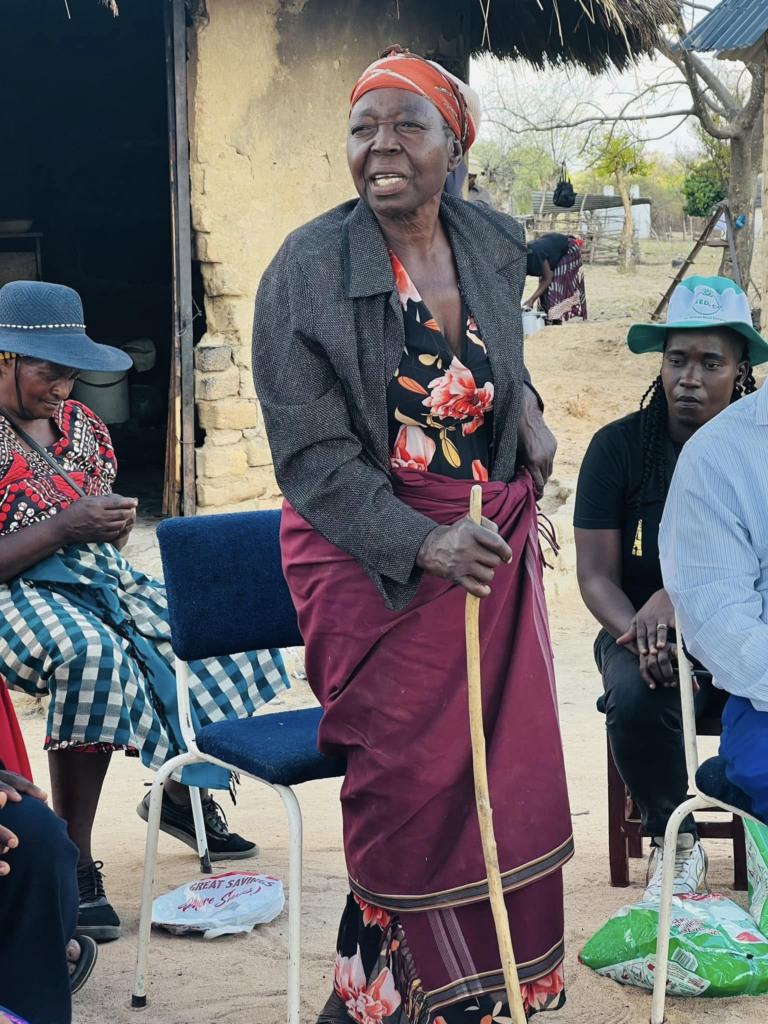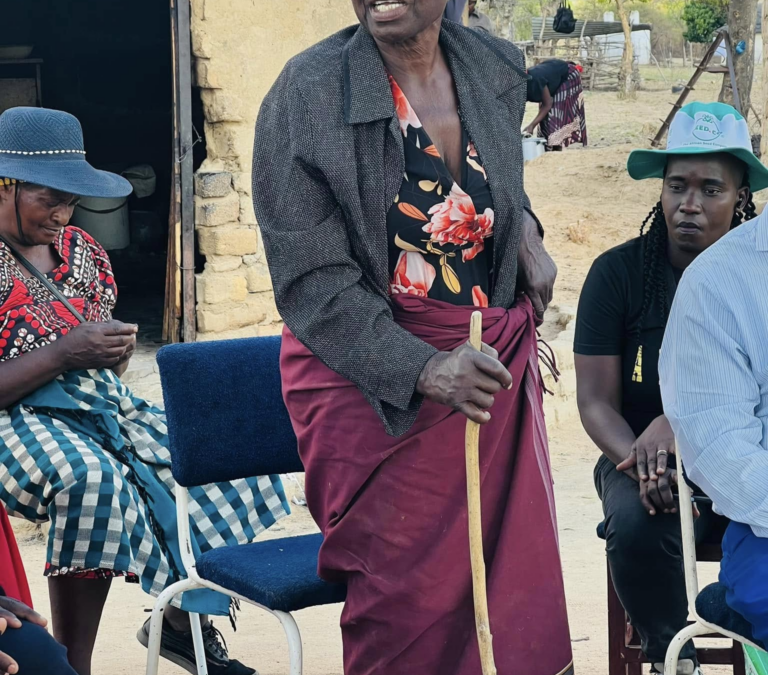By Jerry Zingwevhu
10 February 2025
Ravaged by drought induced poverty
“Life at this age is not easy, I am currently suffering from high blood pressure, weak bones and can barely do any household chores due to old age. Doing intense work to feed my grandchildren is a huge task. We sometimes survive on handouts and donations”, said Gogo Dhlamini.

Living in the Dinhira village under Headmen Mutero in ward 12 Chiwundura area, Gogo Dhlamini, is one of the many widowed women struggling against the severe effects of climate change. So severe has been the effects that she only harvested 0,3 tonnes (Six 50kg bags) in the last farming season from her 0,12 hectares plot. The yields have since depleted leaving her severely food insecure.
Faced with these poor harvests, Gogo Dhlamini and her family have struggled to have enough food as well as making enough money to feed her family.
The climate change reality
Like in many other rural areas in Zimbabwe, Chiwundura area in the Midlands Province largely relies on communal farming as a major economic activity. However, as in most rural areas in the Southern part of Zimbabwe, decreasing rainfall, reduced season, heat waves, and a shift in underground water recharge, amongst many climate change issues, has resulted in low crop yields and intense water and food insecurity. In the midst of this problem, women have become the most affected, as is the case with Gogo Dhlamini, who also takes care of 4 school going grandchildren and one unemployed youth.
“We are living in abject poverty. It has been difficult, even to plough the field with no manpower and the required agricultural inputs”, she added.
The 4-H Zimbabwe hope
This was set to change for Gogo Dhlamini as 4-H Zimbabwe Foundation used her plot as a demonstration and training site for conservative and climate smart farming methods. The organisation mobilised the community farmers from the area for pfumvudza (conservative farming) plots where they were trained on land preparation and planting. The organisation went on to further donate to Gogo Dhlamini the seeds that she was to use for planting in her field.
“Our lives are going to change. Through their project, 4-H Zimbabwe Foundation has given me maize seed and selected my plots for field demonstrations, allowing me to benefit from the labour in the process. I am expecting a yield of 2 tonnes from the crops that were planted in my fields”, recounted Gogo Dhlamini.
With funding from the International Climate Institute (IKI) supported by GIZ and the German Federation, 4-H Zimbabwe Foundation has since March 2024, been implementing a, “Women-Water-Food nexus” project in the Chiwundura area titled, “Enhancing Livelihoods through water-women-food nexus interventions”. The project is aimed at enhancing local based climate adaptation anchored on improving water security and improve food production for households and is targeting youth and women due to their vulnerability to poverty, unemployment and climate change impact and their limited access to resources. 8156 women and youth aged 18-40 years are set to directly benefit in the 8 wards of Chiwundura rural area.


4-H Zimbabwe has a Memorandum of Understanding (MoU) with the Ministry of Lands, Agriculture, Fisheries, Water and Rural Development. The MoU has allowed the project to be implemented within the confines of the Zimbabwe Government National Development Strategy clause that is premised on ensuring that no one is food insecure.
The organisation will continue with this drive across Zimbabwe in every district of the country. 4-H Zimbabwe`s aim to ensure a food and water secure nation whereby the most vulnerable and marginalised groups and individuals are capacitated.
Ends//.

